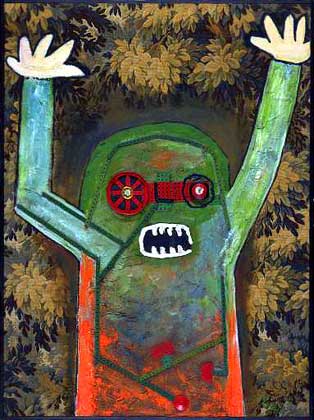
I wanted to write a few things on art and surveillance, and add some other odds & ends to which I didn’t want to devote an entire post.
By way of getting into these things, I wanted to first comment on the current NSA surveillance story. A piece appeared in various papers, on various news blogs, essentially reporting that the majority of U.S. citizens find these surveillance practices perfectly alright.
http://motherboard.vice.com/blog/majority-of-americans-believe-nsa-phone-tracking-is-acceptable
Now polls (as this story points out) are notoriously flawed, and usually can be manipulated to achieve whatever result is desired by those paying for the poll. Still, regardless of how these questions were couched, they do seem to reveal something of public sentiments on this topic.

The obvious first point is *fear*. The marketing of fear is a staple of government propaganda. The shorthand for it is labeled “the war on terror”.
Last post I brought up this question of “identification”. That is an important part of how propaganda functions. And it functions in unconscious, or sub conscious ways. The identification is with the aggressor, in this case, and in most cases, the state. This siding with the government is not, however, quite that simple. On the one hand, I think any sense of taking sides with authority (or what is perceived to be authority) is typical of how western patriarchy operates. The state is the father. It would be useful to know the demographic breakdown (and gender and race, as well as economic) of this poll, and of all such polls. But putting that aside for a second, this is a conditioned response. The conditioning provided by decades of propaganda, from both the U.S. state department, as well as Hollywood and network TV, and corporate marketing.
It is also the constant repetition of a sort of primitive argument that goes…”if you haven’t done anything wrong, you have nothing to fear”.

There is a lot more to say on this, but I want to look at one particular aspect, and that is the role of the pseudo-protest (or pseudo non-conformist narrative). Much Hollywood film and TV has devoted itself to this theme of the “individualist” hero, or often anti-hero. The myth behind this goes back to the frontier settler, the self made rancher who fought off *Indians* and often big railroads, to the gunfighter anti hero myth. This mythology is rooted in Manifest Destiny, and in an ethos of expansion, in progress, in growth as a sign not just of economic health, but of moral health. Genocide was really just inevitable progress. And progress is good. Once off the frontier stage, updated, the individualist hero became a cop, a soldier, and eventually even a businessman. I have mentioned before that classic noir heroes of the 1940s gave way to the hero-as-cop. And then, more recently, as soldier, and torturer. In fact, those classic noirs are something of an aberration in popular cultural product. The protagonists were frightened, driven by a search for truth, often, even if narrowly defined, and with a deep distrust of authority. And that is probably what separates them from almost all other studio film narratives. Criss Cross, Out of the Past, High Sierra, Fallen Angel, Detour, and Postman Always Rings Twice…and a host of others, were morally ambivalent, but additionally, they injected something of an almost metaphysical doubt about identification. Even those which on the surface seemed to be on the side of institutional integrity (File on Thelma Jordan, or Double Indemnity) betrayed an insecurity about identity itself. There was always a strain of Kafka-like metaphysical ambiguity haunting the story. Many based on the hard boiled fiction of writers like Cornell Woolrich, David Goodis, and James Cain — all of them writing protagonists at odds with authority, and all, usually, social failures. What happened after that shift — that was signaled (more or less) by Jack Webb, and then later Eastwood in Dirty Harry— was that good and evil returned in clearly defined ways, and the Manichean world view coalesced around narratives in which identification with the Father was much easier. This marked the start of the superficially well adjusted cop. Later, there were variations on this theme, allowing for the expression of latent sadism and cruelty. A host of other factors attached themselves to studio story telling as time went on.
Kiss Me Deadly, the lurid Aldrich masterpiece, is probably another film that signaled the shift toward authoritarianism. It is a strange cognitively dissonant narrative, but the cold war paranoia had found a foothold and what had been the paranoia of state irrationality became only the fear of Soviet world domination. Sam Spade had become the hyper misogynistic and emotionally unstable Mike Hammer.
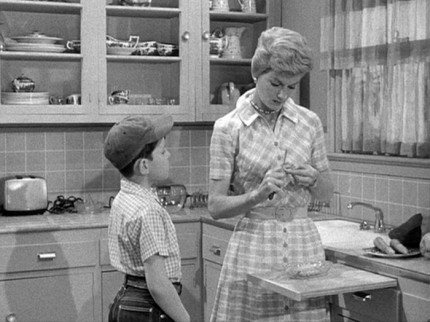
Leave it to Beaver, 1957-1963
Meanwhile, marketing had ascended into a role of dominance in U.S. culture. And this meant that a number of things changed. The working class became less and less visible. There were exceptions in popular TV and film, but not many. In terms of gender and race, a huge effort took place to domesticate protest and reinforce white patriarchal supremicism. The 1950s was the watershed for the cultural hygiene project; seen in the family comedies of Father Knows Best, Leave it to Beaver, Lassie and Dennis The Menace.
Even today, these remain models from which most all later perceptions are based.
When I was a boy, I remember crayons came in a big box…sixty four colors as I recall, and one was called *flesh*. It was a sort of creepy pinkish white. One could look at band-aids, too. The default setting was WHITE. Now this is a topic on which a lot of good writing exists, so I’m not going to go into too much detail, but the point is that the default setting was crayon “flesh” (white…renamed Peach by Crayola sometime in the sixties), and it was Patriarchal, and it dutiful to authority. What is missing, in fact, from period nostalgia like Mad Men is the sense of disappointment one felt throughout society. TV dinners seemed sort of cool, but they tasted like shit.
Yesterday, David Brooks, high profile quisling white man op-ed writer for the New York Times, had this to say about Edward Snowden…
http://www.nytimes.com/2013/06/11/opinion/brooks-the-solitary-leaker.html?_r=0
If one couples the earlier poll to a close reading of Brooks editorial, the conclusions are that dissent is a sign of both immaturity ( probably due to a single parent home, if one reads Brooks barely coded racism) and lack of a moral compass. That moral compass points to the State, to authority, to obedience. Responsibility is for the individual, not the government, though.
Brooks writes…
“He betrayed the Constitution. The founders did not create the United States so that some solitary 29-year-old could make unilateral decisions about what should be exposed. Snowden self-indulgently short-circuited the democratic structures of accountability, putting his own preferences above everything else.”
Now, anyone pausing for even a second would realize it’s the government spy program that betrays the constitution and democratic structures of accountability. But that’s not the script Brooks is using. He is writing from the breakfast table at June Cleaver’s house.
This is fascism. The word remains very unpopular, even on the left, but in fact this is what the NSA is part of — and all that separates it from SAVAK or the Stasi is that a higher percentage of the populace is placated by their gadgets and entertainments, and certainly far better trained as compliant cogs.

Tests, Richard Mosse photographer
But back to an earlier point. The notion of protest, or dissent in film cannot happen directly (well, firstly because there is a monopoly on distribution)because of the structural meaning of the medium itself. Not “film” per se, but the vast apparatus of studio dominated film culture. This is a billion dollar industry, and for all the brilliance of individual filmmakers around the world, the apparatus that announces itself as FILM is more and more dominated by narratives of pure sadism, state violence, and jingoistic propaganda. It becomes hard to write about a specific film, outside of this framing.
There is also something in how film and “film culture” is interacted with and described. The notion of “fan” keeps recurring again and again when I sit down to write anything about filmmaking. This is the dynamic, as I said last time, of Capitalism; the spectacle and the spectator. The spectator increasingly is not the individual ticket buying public sitting in the Cineplex, eating popcorn or gummie bears. It is the consumer of fragmented internet streams, of twitter comments, and links, it is GIFs and cell phone browsing — or, really, it’s cultural shopping. Consumers may know a good deal about John Carter and its box office failure, about Disney’s track record with block busters, about the future career prospects of Taylor Kistch (good name that), and they no doubt know the comparative Neilsen share for the NBA finals vs the season finale of Game of Thrones. They may have watched twelve seconds of John Carter (admittedly more than enough) and read the *reviews* of the tenth episode of the HBO mega series…and they know that NIKE is releasing a new micro-spandex running short, and they know that Beyonce isn’t really pregnant again. This constant sampling and re-assembling of bits and chunks of pirated downloads, stock market reports, weather forecasts,detergent ads, or facebook thread wars, is all assembled in a constant, ever changing and morphing personal non-narrative. But this audience is now MANAGING this sampled stream, this personalized accessory to thought. It is their private movie. And within this is always an intended set of memes produced by corporate marketing, that distances this audience (any audience) form the actual content — there is this encouragement to share the producer’s point of view. To experience the product as if you, too, were planning a marketing strategy. I remember when the very first “behind the scenes” segments of ‘movie fan shows’ and gossip shows began. Interviews with stars and stunt men. Explanations of how special effects worked, etc. It was doing two things; one was to create this sense of being special, of being an insider. The other was a destruction of illusion.
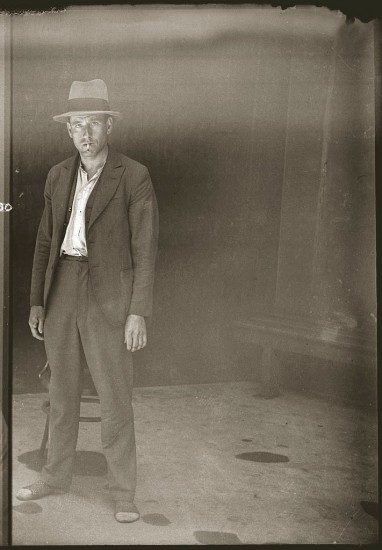
Unknown man, 1920s, mug shot.
Now, the better educated, or those with actual political consciousness, might pause to actually watch protests in Ankara, or listen to Clapper lie about surveillance, but they will also be absorbing a steady stream of products and image. At the other ends are just vast numbers of pure commodity image brokers. This the solipsistic consciousness of fandom.
I suspect everyone is engaged with some dimension of this electronic assault of hyper branding, and I also suspect we are all further into the rabbit hole than we realize.
There is a good deal more to analyse here about social platforms, and writers like Jonathan Beller have addressed it, and people like Dmytri Kleiner are creating models for social change based on internet based technology. But the short version is that as technology lessens hours of labor, today, under advanced capital, it actually lengthens them, because we are always at *work*. Everyone works for the Man, now. And it is in some respects a fact that surveillance is built into it. Industrial capital is going to be in the surveillance business.
As Bruce Gottbleib says:
“Web-based service providers such as Facebook and Google are not the Internet, but rather are web-based platforms built on the Internet. The superior user-experience of such services accrues a dedicated user base for basic communication functionalities. The design idiosyncrasies of these platforms define popular culture. However just because certain service providers have become dominant does not mean that the techniques or strategies they employ are fundamentally superior. These have become dominant because they have evolved a business model which ensures a generous ROI. Without exception, the leading platforms ensure value for their investors by trading in user data.”
I am hopping around from topic to topic this time, though I tend to see these things connecting at some level.

How do these realities affect culture and narrative? I think there is a real question here having to do with attempts to step outside the vast industrial drive of corporate and state capital, both as creators and as audience. That surveillance is now the rationale driving state security — meaning domination and control of the citizenry — the entire question of paranoia gets raised again. And it is raised within a new climate of insecurity about identity.
I happened to be reading a review of Godard’s second feature, Le Petit Soldat, because a friend had sent me a cyber flyer about a screening. The review was from the Village Voice and right off, in the first sentence, is the conflating of Zero Dark Thirty with Le Petit Soldat, because both have sequences of water boarding. However, the p.o.v. of each is directly opposite. And not to recognize that Godard’s camera is implying something quite different from the pedestrian carelessness of Bigelow’s torture porn, speaks to the poverty of good critical writing on film. One interesting side bar to the Godard, is that Michel Subor, who plays the lead character, ‘Bruno Forestier’, appears forty years later, as the same character (or at least with the same name) in Claire Denis’ Beau Travail.
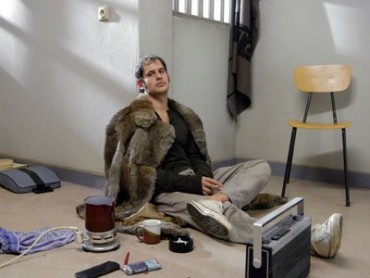
Baader-Meinhof Komplex, 2008. Dr. Uli Edel
The compromised and confused, love stricken and self involved young agent of the right re-appears as a fatalistic melancholy commander of a remote Foreign Legion post in east Africa. It is an interesting footnote to the most politically uncertain of Godard’s works — though one which clearly influenced Bertolucci’s The Conformist. These are interesting films to ponder right now. In an age when mainstream critics can confuse (well, hardly even think past the perceived cleverness of comparing Bigelow’s fascist drek with what is, still, an austere and radical portrait of how easily the state can co-opt unformed political ideas), is testament to the vapidity of cultural consumer advocacy (reviews). Films such as the Godard don’t seem to get made often, today. I can think of only a handful….Uli Edel’s Baader Meinhoff Komplex, from 2008, was probably the best. But here maybe I should be more concrete about the politics of narrative. A film like the Claire Denis, ostensively based on Melville’s Billy Budd, is really a comment on the legacy of colonial occupations, on the constellation of homo-eroticism, discipline, sadism, and the internalized guilt of these unwitting symbols of dying empire. It’s a majestic film and haunting. The Edel is haunting in another way, and perhaps more necessarily de-romanticized. The surreal madness of the final trial captures something of the irrational banality of conformist institutional life — the echos of David Brooks are not that hard to hear. This is a topic worthy of an entire posting, I suspect, but for now I will leave it there.
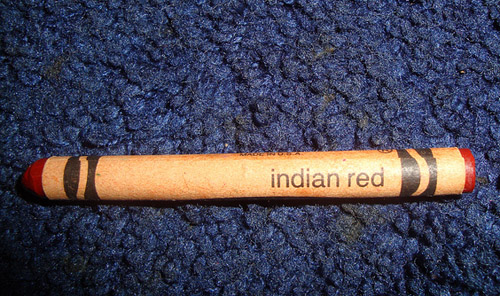
One thing great (sic) art does is in a refracted way foretell the future. A prophetic vision, and often it is a shadow future that is foretold. It is the imagining of inner dialogues, or a madness to come, both socially, and individually. It disrupts a counterfeit emotional equilibrium, providing a wound whose healing process is, I believe, the impossible and ineffable stuff of allegory.

Mort Zukerman
There is an unfortunate visibility to little white guys like Brooks — resentful, with their small soft hands with their carefully cleaned nails, or further down the tracks going right, a Mort Zukerman, a Nial Ferguson. These are the men who perpetuate the mythology of Father Knows Best. Its the Bush family, the Koch Brothers, the Romneys (even if they are perverted Morman scum, at least they got money), the Kerry family (well, Heinz family), and it is Silicon Valley:
http://www.motherjones.com/mojo/2013/06/silicon-valley-race-gender-problem-income-inequality

Summer party, Southampton, Robin Pickett’s mansion 2013
One dimension of what culture does, or is meant to do, is etch an emotional intaglio in the psyche — an encipher of the material stuff of the world, which is deciphered in a mimetic reading. I think this is the very real basic process of any authentic artistic life. Without cultural projects, society sinks to the level of venality and aggression. In a planet where millions cannot think past basic survival, it is a very real part of the artistic project to express this violence and inequality. That expression however is itself submitted to an aesthetic violence if it is not somehow encrypted. This is the mystery of mimesis in a sense. Narrative has increasingly becomes anti-symbolic and certainly anti-allegorical. The problem is not that it is willfully abstract — it is that it is literal in an absolutely one dimensional way.

Workers, UAE, 2012
Southampton is the exclusive province of rich white folk. Mostly summer residences, the names include David Koch, George Soros, Damon Mezzacappa, Arthur Sulzburger, Chuck Scarborough, Leonard Stern, and John Paulson (I think he sold recently, but whatever). Over in the East Hamptons, one finds Jeff Zuker, Jann Wenner, Ron Perelman, and about twelve different hedge fund managers…oh, and P.Diddy. I mention all this, because it’s worth keeping in mind that the people who shape network news, entertainment, and who reap obscene profit off this addiction to social media …. not to mention those who profit off defense projects, arms, and military communications, all live in the same hood, and socialize together. These are homes in the neighborhood of thirty to fifty million dollars each.
The system breeds inequality.
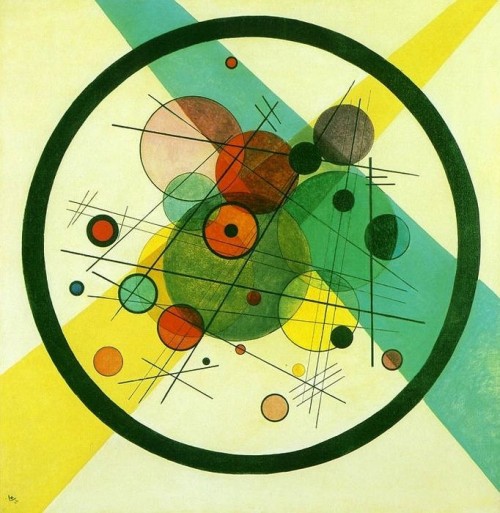
In government, strolling the corridors of power, are the day players:
Susan Rice, Samantha Power, James Clapper, or Rahm Emanuel — that little fascist psycho — these people lie, they bow and scrape, they are careerists and opportunists. And they now cross fertilize with cultural institutions like PEN. These are the clerks for Empire. Obama, and his court —Biden, Hillary, or Diane Feinstein. These are just marionettes. Meanwhile the George Zimmerman trial is underway. The Bradley Manning inquisition…er….trial is underway, and still, so many Americans cannot fathom that being watched, being monitored is spiritually depleting. Cannot understand that it’s not about innocence. Jeffrey Rosen’s book on surveillance with the outstanding title, The Unwelcome Gaze, could serve as useful guidebook to the paranoia planet. What is it to be human? Whatever it is, that unwanted gaze, the monitoring of daily life, robs people of something essential. No wonder the kitsch version of “individuality” is marketed so aggressively. No wonder narratives of “authentic individuals” has become a constant of corporate entertainment. It is because all individuality is being given strict limits of expression. Of course dissent is increasingly criminalized, but so is autonomy of any sort. If the CCTV is pointed at you, then a natural adjustment is going to take place. I believe it is a bit like an invisible inner nervousness, a speeded up molecular oscillating like emotional microwave. If the security cameras are working —then don’t stop too long while texting, don’t pause to just watch the clouds, because you are likely going to trigger one security filter or another. This is a system of capital, of patriarchy with a racist anthropology underpinning….and of domination. Soon everything is going to be for sale. You want to watch those passing clouds? Well, buy a package of six viewings for only forty eight ninety five. You think you could get in your old 1998 Mazda and drive over to hang out in the Hamptons or Beverly Hills? Well, you can’t.
Real estate. Property. Security.
James Bamford wrote in the NYRB:
“In a remote edge of Utah’s dry and arid high desert, where temperatures often zoom past 100 degrees, hard-hatted construction workers with top-secret clearances are preparing to build what may become America’s equivalent of Jorge Luis Borges’s “Library of Babel,” a place where the collection of information is both infinite and at the same time monstrous, where the entire world’s knowledge is stored, but not a single word is understood. At a million square feet, the mammoth $2 billion structure will be one-third larger than the US Capitol and will use the same amount of energy as every house in Salt Lake City combined.
Unlike Borges’s “labyrinth of letters,” this library expects few visitors. It’s being built by the ultra-secret National Security Agency—which is primarily responsible for “signals intelligence,” the collection and analysis of various forms of communication—to house trillions of phone calls, e-mail messages, and data trails: Web searches, parking receipts, bookstore visits, and other digital “pocket litter.” Lacking adequate space and power at its city-sized Fort Meade, Maryland, headquarters, the NSA is also completing work on another data archive, this one in San Antonio, Texas, which will be nearly the size of the Alamodome.”
The NSA surveillance system is now so big, they are running out of electricity to run it. Last year the electric bill was around seventy million dollars. It is estimated to be much more in the near future.
The Sheep look Up.
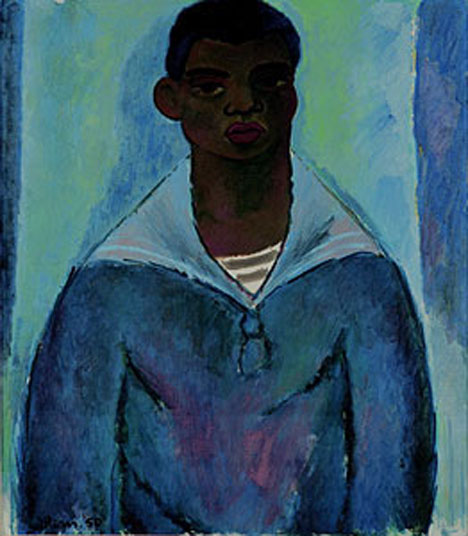
From James Wright’s poem
At the Executed Murderer’s Grave
Doty, the rapist and the murderer,
Sleeps in a ditch of fire, and cannot hear;
And where, in earth or hell’s unholy peace,
Men’s suicides will stop, God knows, not I.
Angels and pebbles mock me under trees.
Earth is a door I cannot even face.
Order be damned, I do not want to die,
Even to keep Belaire, Ohio, safe.
The hackles on my neck are fear, not grief.
(Open, dungeon! Open, roof of the ground!)
I hear the last sea in the Ohio grass,
Heaving a tide of gray disastrousness.
Wrinkles of winter ditch the rotted face
Of Doty, killer, imbecile, and thief:
Dirt of my flesh, defeated, underground.


Do people disclose details of all they do, think and feel on Facebook because they think the government is good and will never hurt them? People–particularly young peoples’–lives are no longer a secret, and when I talk to others my age(Old!) about this they are appalled. An innocent game where no one’s watching and no one cares… the disconnect is profound…you’ve touched on it in the latter part of your essay and Molly spoke of this a few post comments back too–expression and factoids floating in a sort of mediated miasma …
The notion of privacy IS completely different for the millenial generation and people who’ve bought into it: there is none, a blending in with the community of aspirational normative expression, codes and branded identities that are entirely specular and manipulated, and yes a perfect display of an advanced new-and-free form of fascism
Great stuff again.
I keep thinking of Macluahn “global village” and how this was misread so badly after, as implying and connoting just the opposite of what he meant. He meant – from his Catholic hegelian white supremacist imperialist posture – “village” as a primitive and barbaric condition, a scary thing from the pov of urban “moderns”; village like shirley jackson imagines, village as tribal narrow a-liberal. And I think now living in such a village, about privacy – I couldn’t even imagine how much privacy and a certain way of being i would lose leaving big cities. I didnt even notice the anonymity and flexibility in sociality i was immersed in. I always lived in cosmospolises…brief sojourns in places of 50-100k folks disquieted me with the ease of the community’s surveillance. But now, yes, there is no such metropolis, for youth, there is this global village, without privacy, though there remains this disconnect between the exposed life online and the still private life in real place and space if chosen (in universities and high schools this it really abolished probably). And perhaps the revolutionary capacity that belonged to the city that was the scene of this privacy and flexibility in the revolutionary age is lost too, the metropolis in which one could vanish and manoeuvre and groups could form inconspicuously and places that were nodes of vast networks of relations. The city was redesigned in the 20th century for crowd control, and now really the camp is being built around people instead of shipping people to it one trains. The surveillance is being constructed within the home, and everything is guided so that action is voluntary – computing power has allowed for the management of huge populations with prods, without micromanagement, without the nazi style micromanagement of the day, the bureaucracy and the administrativeness. Carrots and sticks made the populations of the world cities reorder eachother and themselves – the gentrified centres where they gentrified volunteered to expell the others. No orders needed to be given for ethnic cleansing. There was an armed element but to support the “natural” movements along which money and property and fashion and culture streamed people.
you’ll like this:
“Disappearances” Elizabeth Gaskell, 1851:
http://lang.nagoya-u.ac.jp/~matsuoka/EG-Disappearances.html
@Rita, Molly:
great comments, and thanks for the link Molly.
I have to go back and re read McLuhan……its been soooo long since i read him. My impression in a way was that he didnt quite grasp the implications of what he had figured out. But he certainly was prescient. This question of facebook and other social media has several dimensions. One is that fb is obviously really Stasi-Book as applebaum calls it. And thats true. Second….there is a very useful dimension to social media, too. And there is no denying that. But the question of privacy is something that I think is worthy of an entire post….i mean its part of a shift in cognition almost…..the entire relationship between what we mean by public and private.
And the city vs non city…….this is also undergoing some sort of transformation. I know personally a LOT of people living out of cities now…..some very rural, some in small villages or towns, and some just out in the middle of nowhere and really off the grid. I know that i enjoy the country now in a way I didnt when i was younger. I miss culture……i miss the sense of society as an idea and an entity to engage with — but last time i was in LA i was really distrubed by it. I ended up staying way out in the desert….and accepted the commute as a trade off. Right now Im in the forest. I have no real neighbors….not close anyway. But im only forty minutes walk to town….so its not really that remote. I think the idea of connectedness has changed. And it affects culture too……and that also, is a huge question.
I am wondering about the recent ‘revelations’ regarding the National Security Agency in relation to this piece, I will print, read and then comment more.
Print and read! What a difference seeing it on paper makes: it makes it readable!
Here in the UK, where the Guardian exclusively broke the NSA story, I have read that 56% of US Americans oppose or think the government has gone too far.
This surveillance issue unites the anarchists, democratic socialists and others on the far left (like myself) with some of the more parochial feature of the demos like libertarians and anarcho-capitalists, anti-government, anti- tax people. I have been involved in calling the White House about Bradley Manning, writing to the Defence Department, corresponding with Manning himself, etc, and I actually don’t believe I am being ‘watched’ for there is simply far too much data coming in for the system to analyse. The ‘high profile’ people that maybe getting watched are probably not being watched, for we are public about our actions. In any case, I do think that the National Sex-Security Agency represents ol’ Daddy Sam and his attempts to make us think we are being watched. Many people prefer the idea that they are being watched, so the NSA might be something like ‘yeah, I got my 15 minutes of fame!’ even if it is just so creepy dude reading your emails! 🙂 LOL
Thank you for nice information